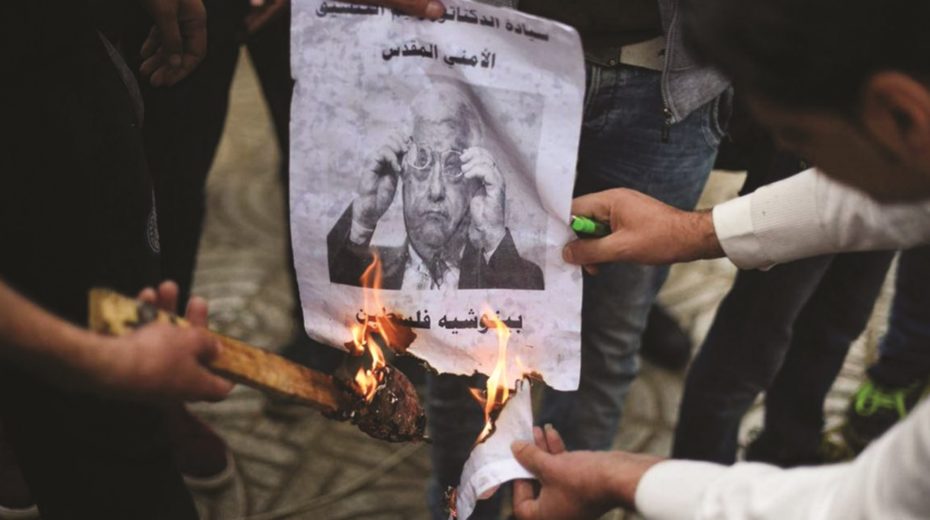Democracy? Not Exactly
With all the talk of democracy being in “danger” in both Israel and the US, it’s odd, if not downright hypocritical that everyone’s bent on creating a non-democratic Palestinian state.

Is democracy really so holy and sacred to pundits and politicians? With elections looming in both Israel and the US, those whose parties look poised for defeat are busy loudly lamenting the impending doom of democracy. And yet, they have no problem pushing for the establishment of a new Middle East state that everyone knows will be anything but democratic.
One of the core ideas of the Middle East peace process was that the Palestinian state created alongside Israel would be a true, Western-style democracy.
None of the global peace brokers could legitimately support the birth of yet another Middle East dictatorship, or of a pseudo-democracy where elections are held only when it suits the rich and powerful, and where various armed groups compete for votes through violence.
But that is precisely what the Palestinian Authority has become.
The interim period built into the “Oslo” peace process was meant to give the Palestinians an opportunity to put in place the mechanisms of statehood, to lay the foundations of a free and democratic society.
At a briefing organized by the Jerusalem Press Club several years ago, Lt.-Col. Alon Eviatar, former Adviser for Arab Affairs to the Coordinator of Government Activities in the Territories (COGAT), provided an explanation as to why the Palestinian Authority is so allergic to routine open elections.
“Local elections in the Palestinian Authority are a joke, but the drama surrounding them provides an important glimpse into Palestinian political culture,” Eviatar began.
When the Palestinian Authority last suggested local elections in 2004-2005, it was a means of putting political pressure on its rivals in Hamas, which had previously refused to participate in the democratic process. But, Eviator recalled, everyone was shocked when Hamas responded positively and ended up scoring major electoral victories.
“Hamas correctly analyzed that they were finally ready for elections, which they saw as an opportunity to advance their goal of seizing control of the Palestinian government,” he explained.
This, Eviatar continued, was a blow from which the Palestinian Authority and its ruling Fatah faction still hasn’t recovered. And that’s why Palestinian President Mahmoud Abbas, citing various procedural excuses, had his court’s call off the latest scheduled election. “Abbas and his Fatah are afraid,” said Eviatar.
Clan influence
Another aspect of Palestinian elections that doesn’t sit right with Western observers is clan influence.
Large clans dominate most Palestinian municipalities, and when the clan leadership supports a particular faction or politician, everyone else must vote accordingly. In some areas that can mean political leaders are effectively appointed by powerful sheikhs, rather that being democratically chosen.
Role of terrorism
Israel Today asked Eviatar what role terrorism against Israel plays in Palestinian election campaigning. According to him, “the armed struggle is not one of the topics the parties are currently addressing.” Not yet, at least.
“Like anywhere else,” he continued, “the main issues on the table are social and civil in nature.”
What if?
Everyone wanted to know, what if Palestinian elections were held today?
In that scenario, Eviatar saw a narrow victory for Hamas. Though he said the group’s real challenge would be to win a large municipality like Nablus (biblical Shechem) or Hebron, while maintaining control of Gaza. The reason being that local elections are seen as a litmus for the next general election.
But regardless of who emerges as the next Palestinian leader in that future general election, Eviatar foresees more of the same in as far as Israel and the peace process are concerned.
In fact, he believes the next Palestinian leader will have to be even more extreme than Abbas if he wants to remain in power. “No Palestinian candidate will be able to hold a position of compromise,” he said. “Nor do any of them hold such views, anyway. They are all disciples of Yasser Arafat. He is the reference point.”
No comments:
Post a Comment